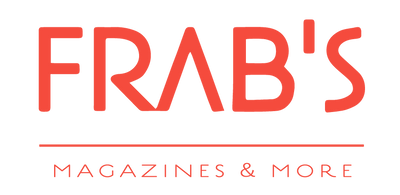Moreness n. 2
Moreness is a mountain magazine and the first magazine of franzLAB, a Bolzano-based communication agency specializing in text design and editorial projects.
It is a magazine that talks about the identity of a territory deeply linked to the mountains and its times, South Tyrol. Imagined by the authors as a real "Dolomite encyclopedia", it is a well-constructed mix between book and magazine that starts out as a trilogy from the first issue. Mountain Trilogy, a series of three bookazines that tell the mountain from top to bottom, starting from the high mountain to then tell the story of the forest and wood.
franzLAB wanted to represent in this magazine the concept underlying his artistic work: "more than apples and cows", the ability to tell the traditions of the Dolomite lands in a contemporary way. Moreness is the editorial transposition of the concept that leads the agency to always seek "more" in any context in which it works: in industry and culture, tourism and hotels, art and design, food and wine, fashion and music.
Particularly accurate in the choice of papers and typefaces, the work of typeklang, Moreness is a robust and deep magazine, which from the circular cutout on the cover seems to make the reader breathe the fresh breeze of the mountain air.
[do you also want number 1 of Moreness, dedicated to high mountains? You find it here]
ISSUE 2 - On Trees and Woods
The second issue of Moreness is dedicated to that world teeming with life that is the forest with its trees. It tells us about the myth of the forest, about Christmas trees that are delivered to the city packed like any consumer item, about high altitude art and objects from the forest that tell the story of a very lively place. It speaks of forests tragically cut down by the wind, of life that dates back from the roots of uprooted trees and, above all, of wise teachings on how to face the mountain and how to respect it.
Here are the contents of Issue 2 (from fransmagazine.com)
Emanuele Coccia ed Emanuele Quinz, respectively philosopher and historian of art and design, interact in a four-handed essay on what the forest teaches; the physicist and neuroscientist Johannes Frasnelli investigates the olfactory stimuli generated by the forest environment; the curator of the Italian Pavilion at the 2021 Venice Architecture Biennale and professor in architecture and urban planning at the University of Portsmouth Alessandro Melis and connects it Barbora Foerster, analyze the role of trees as indicators and sentinels of climate change; Alessia Baggio Corradi, artist and designer, together with Jelle Kalsbeek, An expert in medieval and Renaissance culture, they search for mythological roots in the imagination of the forest and their extension in the contemporary world; Pierangelo Giacomuzzi, graduated in sculpture between Verona and Carrara, tells of a personal tactile, concrete, corporeal relationship that is established with the trees; the Professor of the University of Padua and head of the Study Center for the Alpine Environment Tommaso Anfodillo analyzes the mechanisms that determine or destabilize the balance of wooded areas; the cultural designer Giulia Mirandola collects some publications in which the forest is declined in the world of illustration; Susanne Barta, Journalist and expert in sustainable fashion, reflects on the theme of environmental sustainability and its applications in territorial policies; the chef and researcher Lorenzo Barbasetti, founder of Prometheus-Open Food Lab, explore the possibilities that the single entities of the forest offer to the kitchen; Guido Musante Domus journalist, lecturer at the Politicnico di Milano and Editor of Stefano Boeri narrates with the tones of a story the shapes that the tree can acquire if shaped by the mind of a creative; the head of the scientific pages of the Frankfurter Allgemeine Sonntagszeitung Sonja Kastilan, he describes the technical details on the microorganisms present in the forest in an almost lyrical-poetic language; Mail Weil, artistic and performative platform founded by Elisa Di Liberato, Lorenzo Facchinelli and Mara Ferrieri explores the cultural imaginaries that have shaped the forest; Arno Raffeiner, film and music author and journalist, he brings out the universe of sound that the forest knows how to release.
Cover: soft
Language: Italian / English / German
Pages: 192
Dimensions:
Edition: 2000 copies
Images: © franzLAB / typeklang







